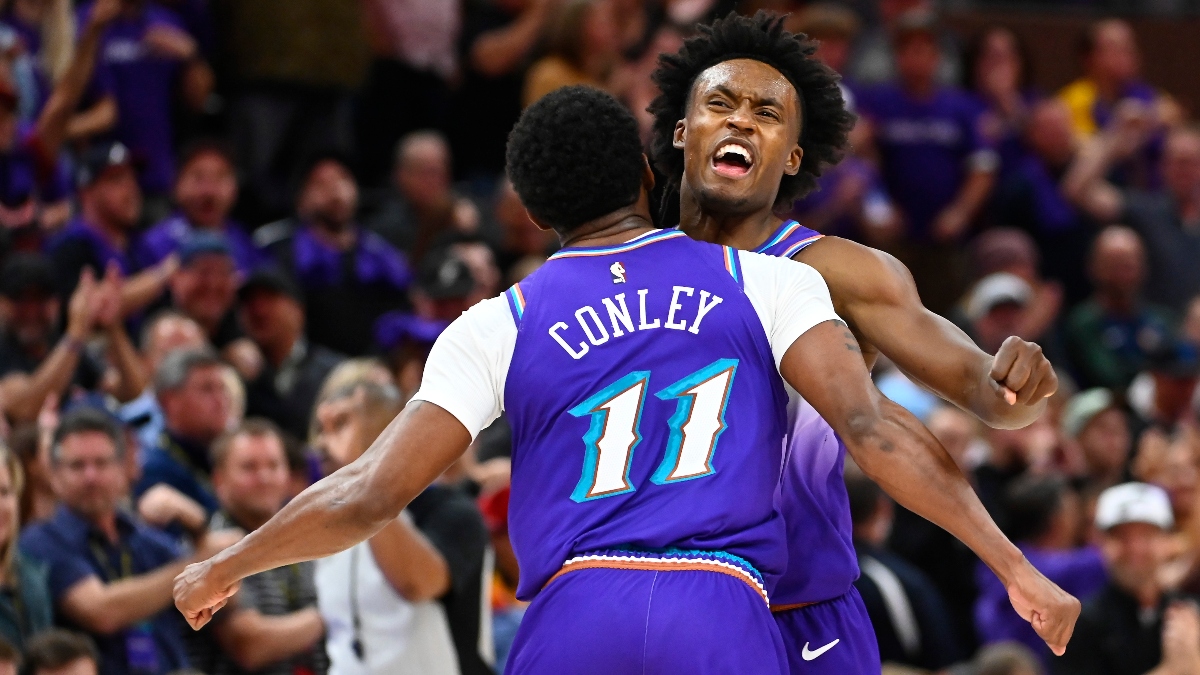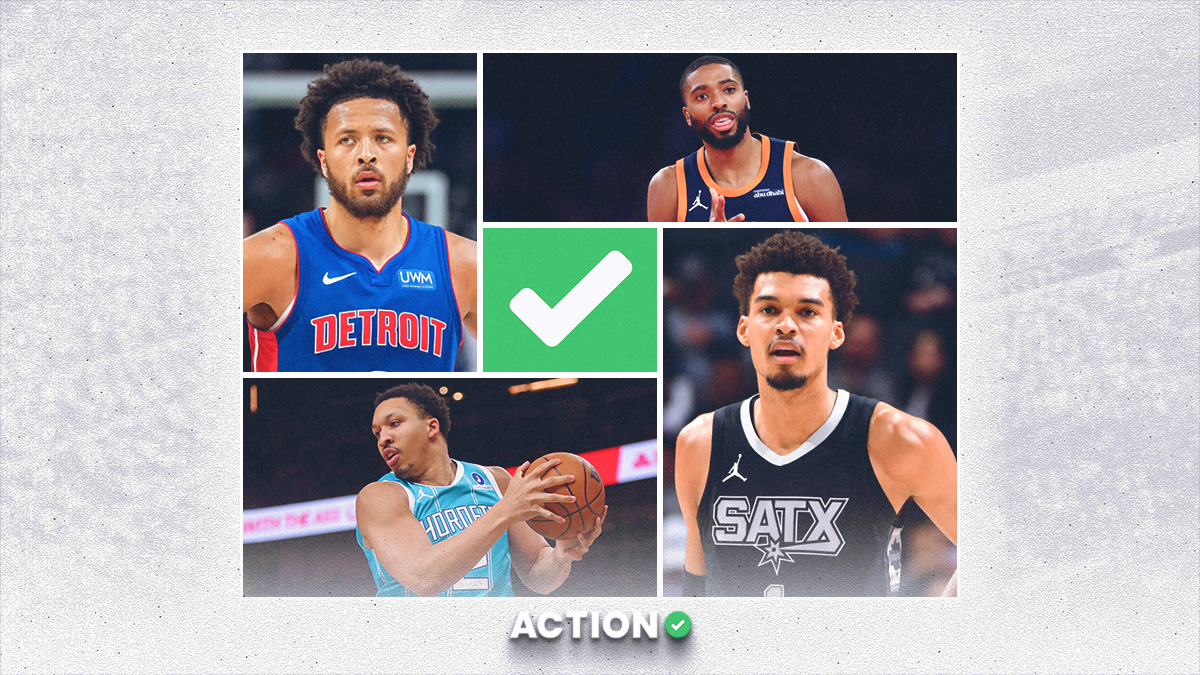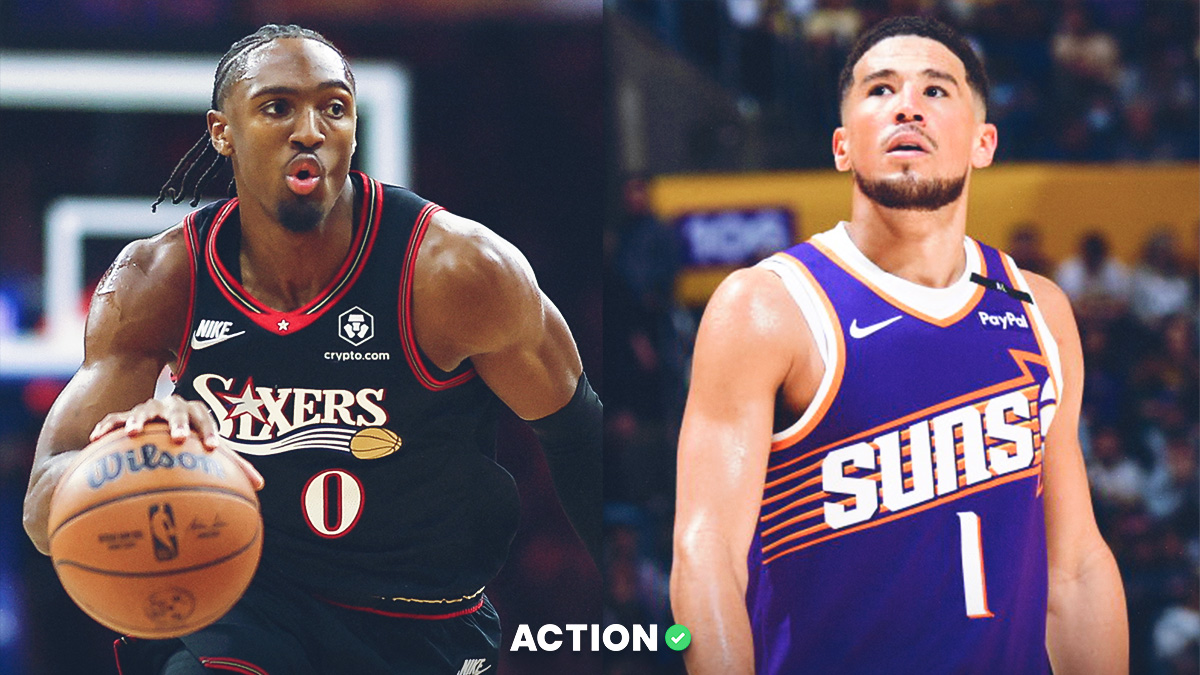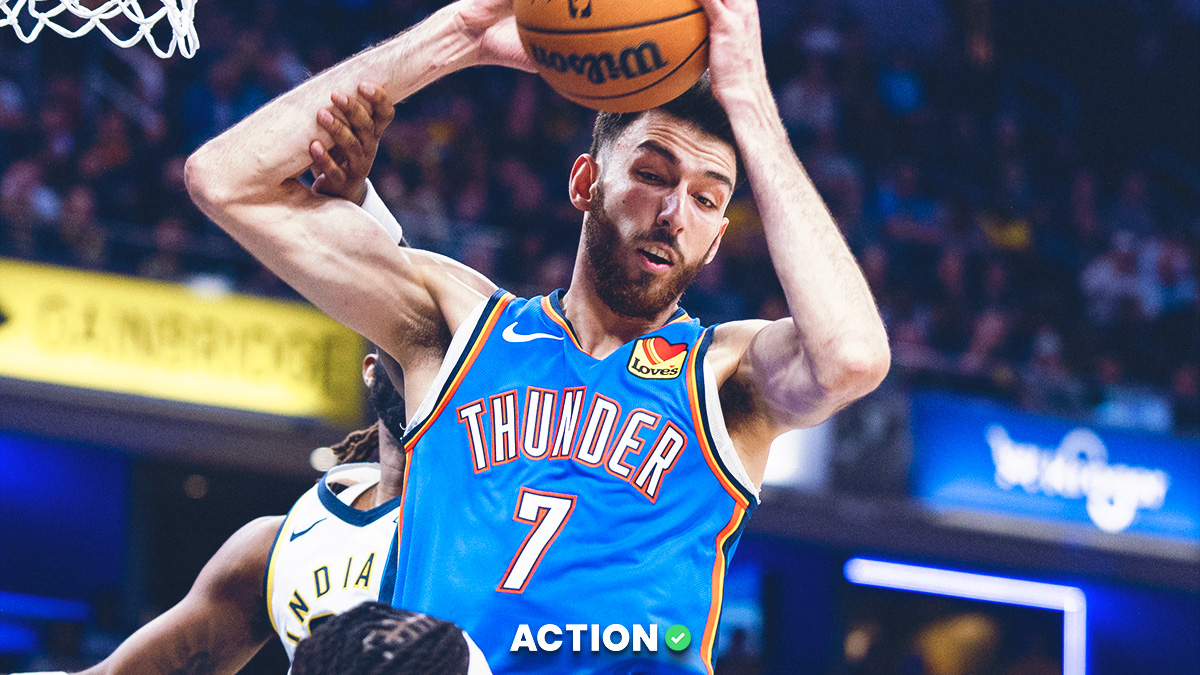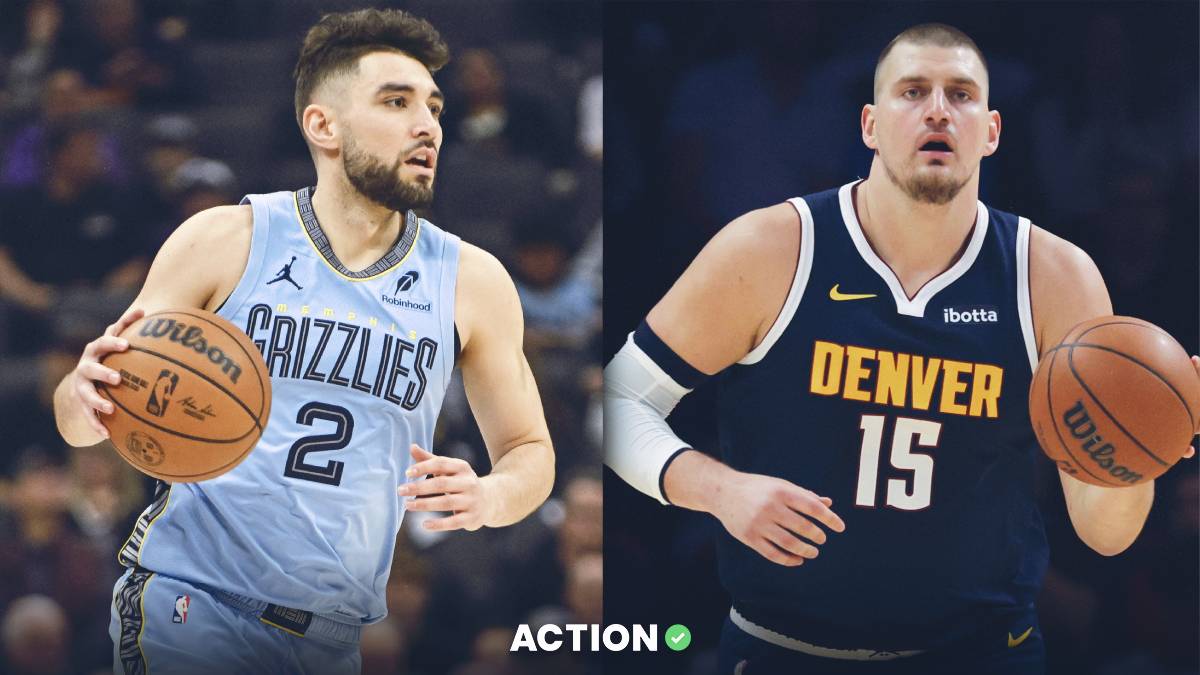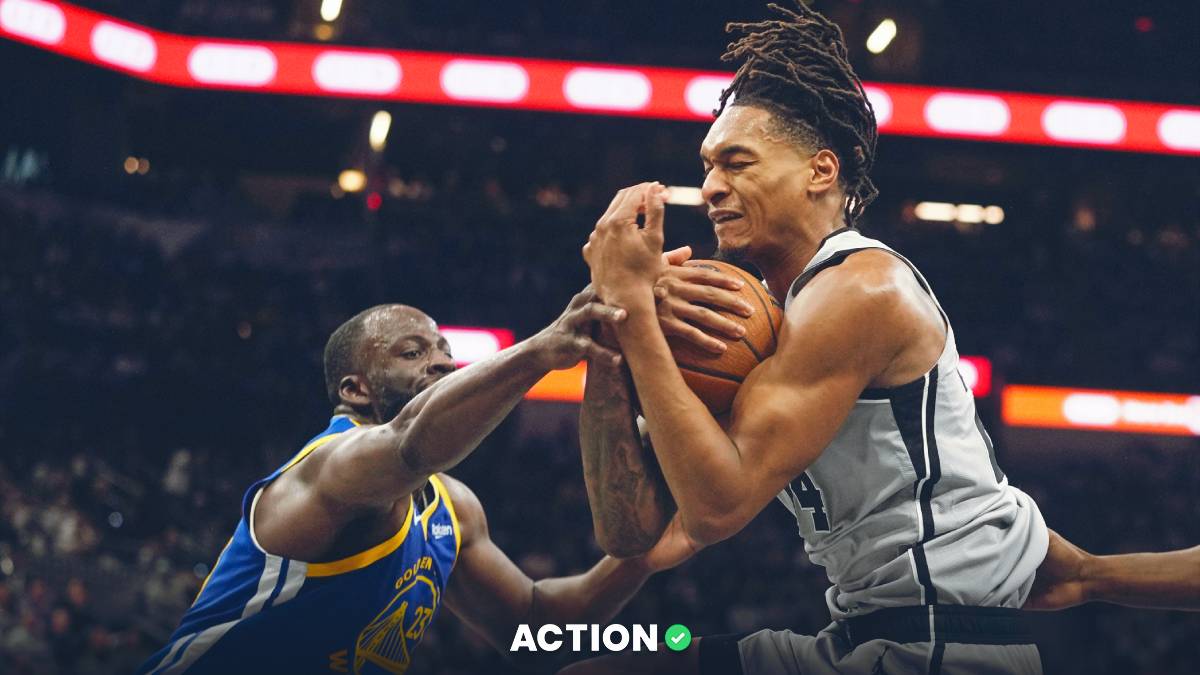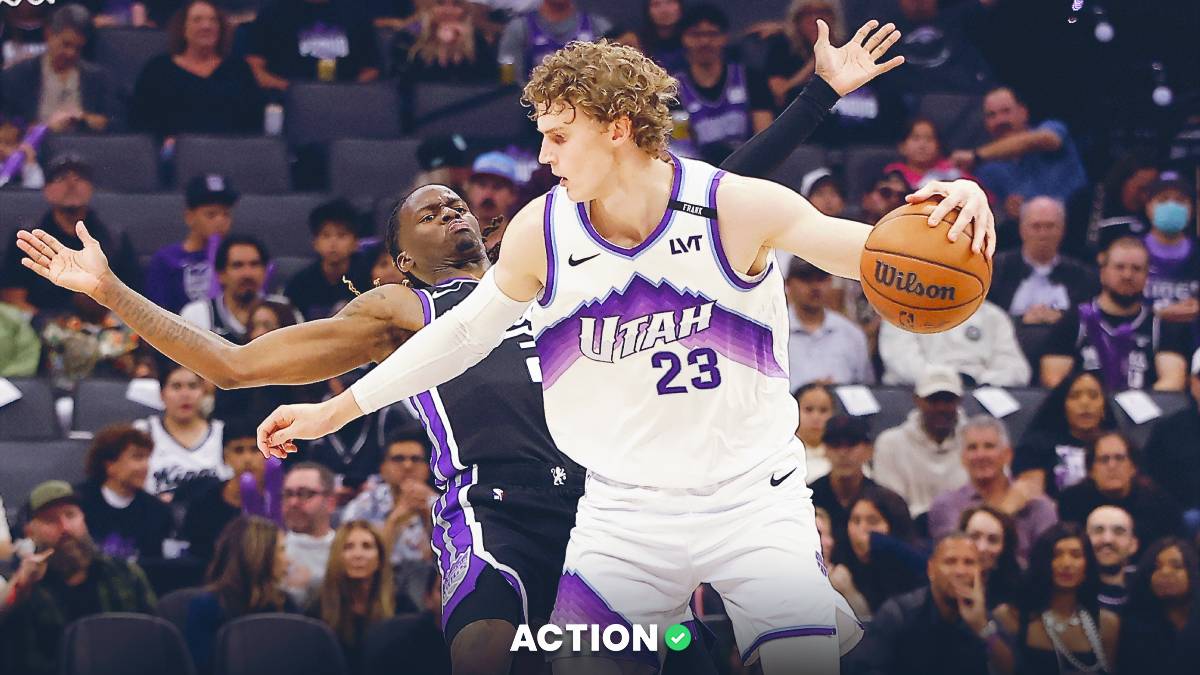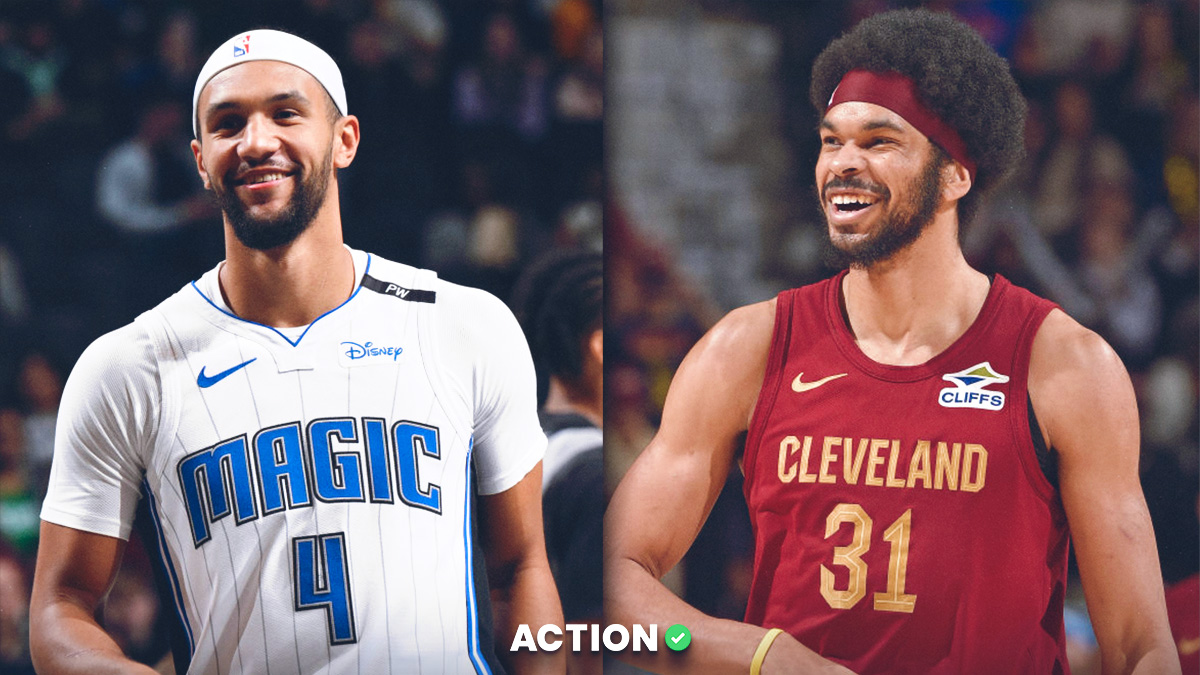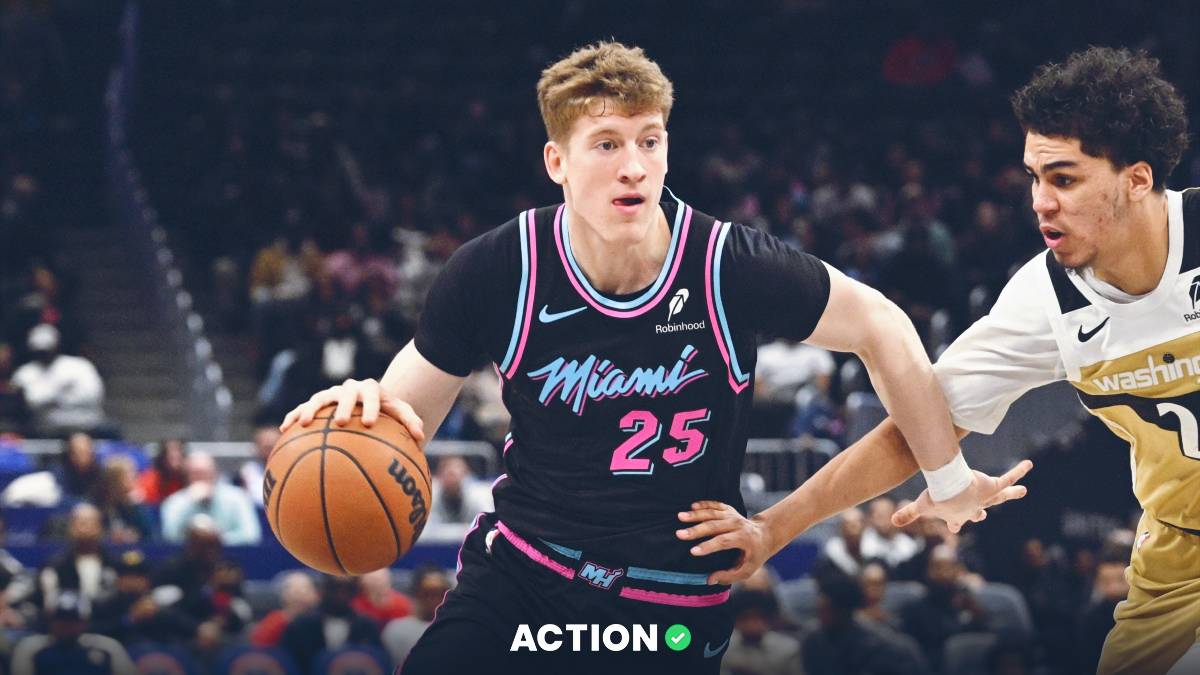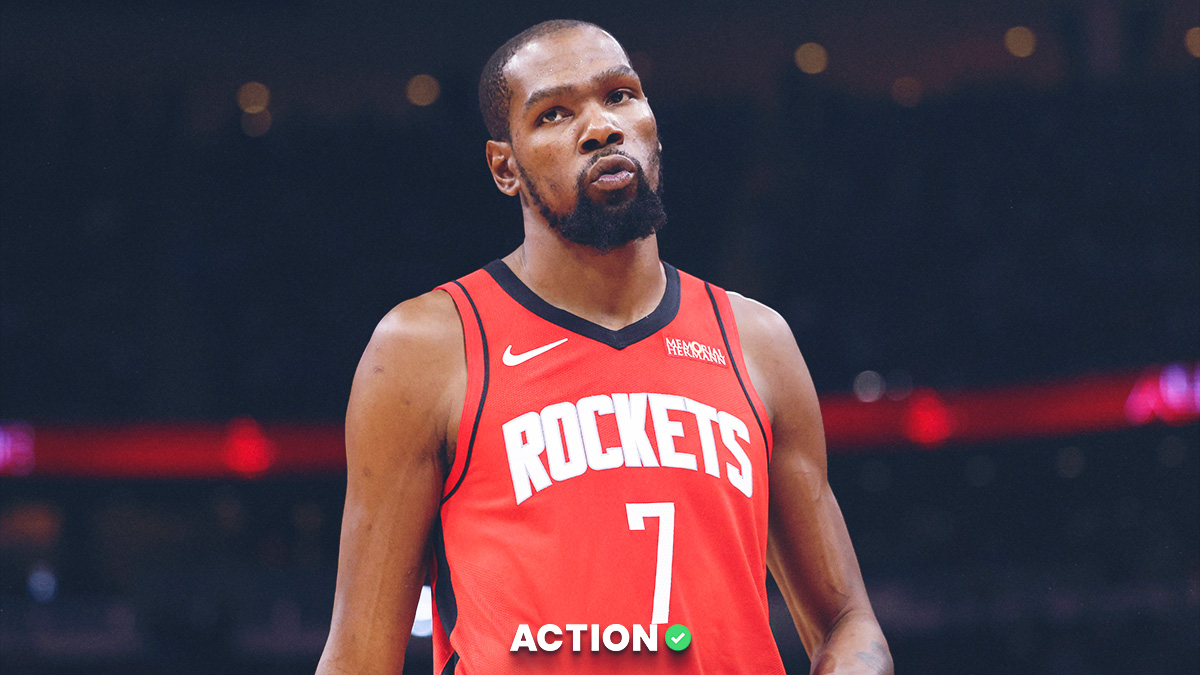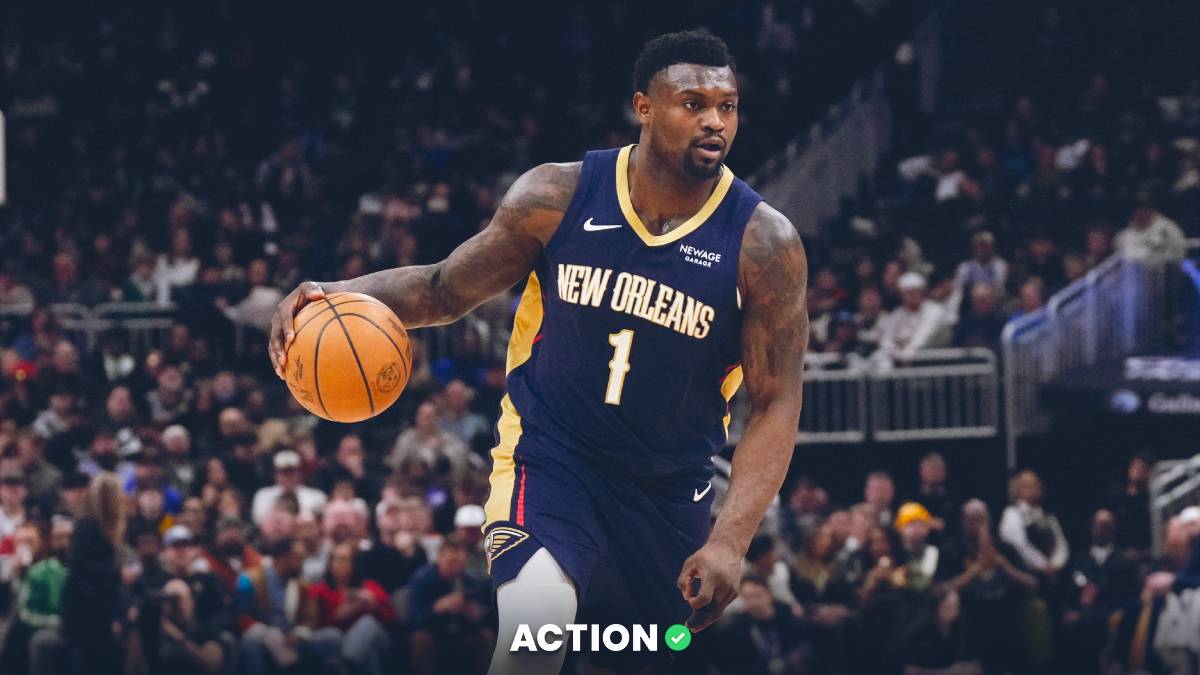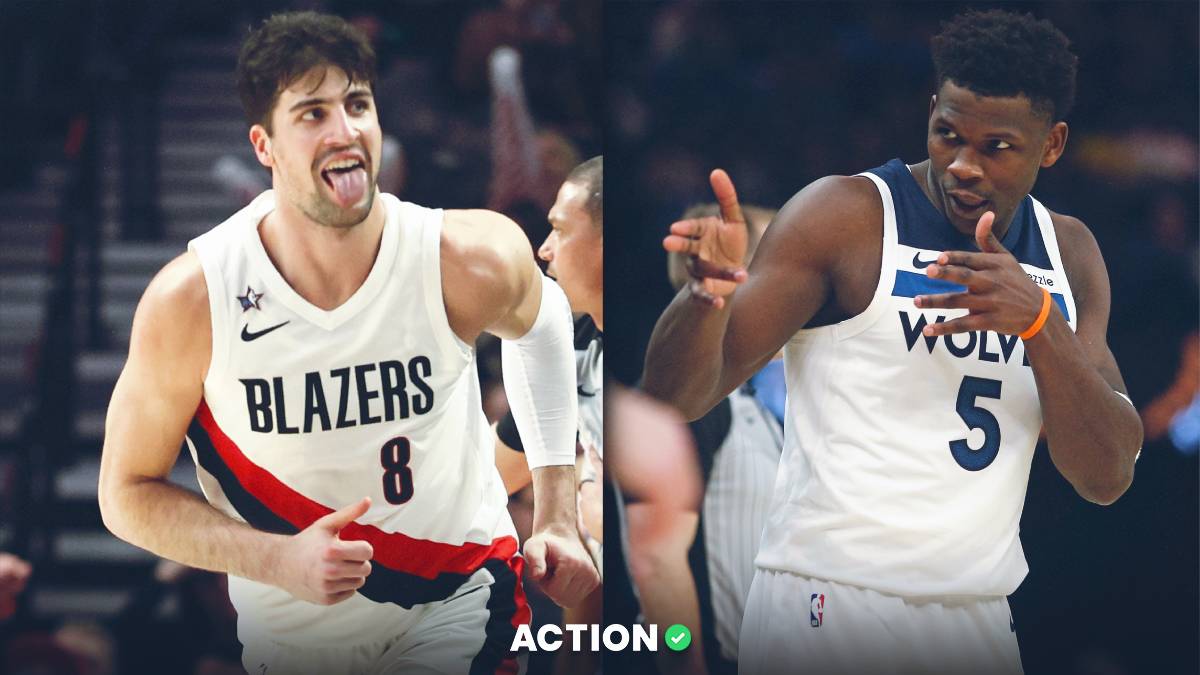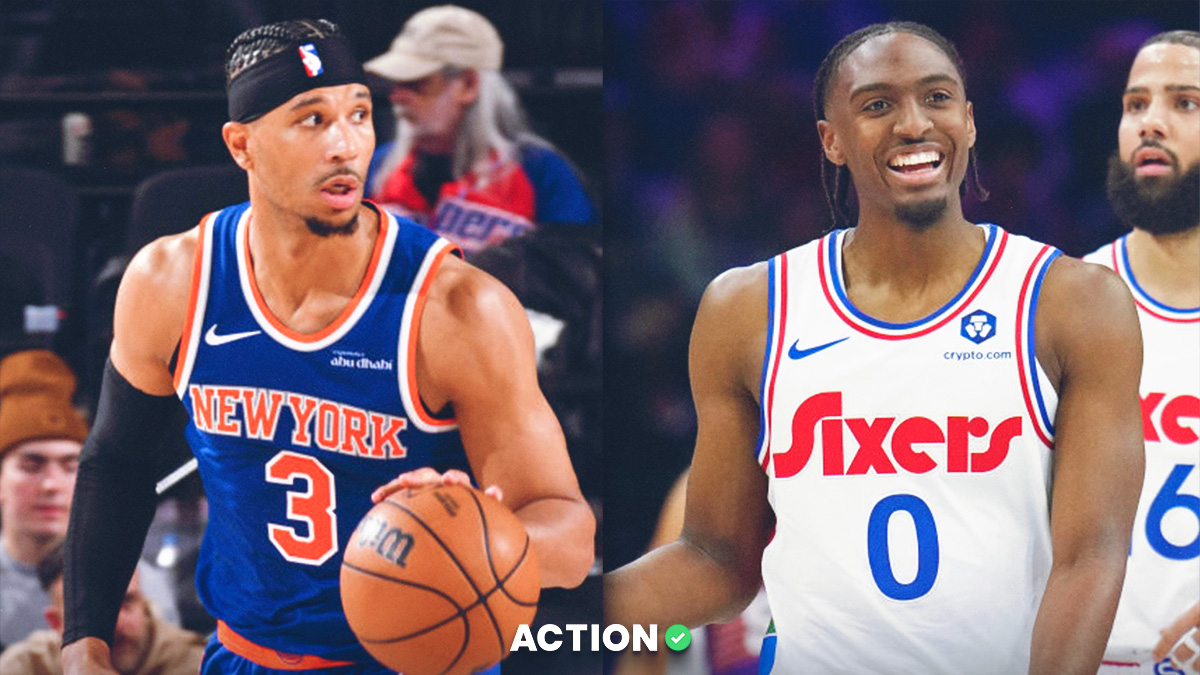The Utah Jazz are the early surprise of the NBA season.
The Jazz blew up their team, tearing down a roster that dominated the West the last few regular seasons. Rudy Gobert was shipped to Minnesota. Donovan Mitchell was moved to Cleveland. Bojan Bogdanovic was traded to Detroit, and Royce O'Neale was sent to Brooklyn.
Those four led the Jazz in MPG, and their exits signaled a massive rebuild for Danny Ainge. Utah opened the year with a bottom-five win total, and the race for Victor Wembanyama was on.
There's just one problem — someone forgot to tell the Jazz.
Utah stunned the Nuggets in the opener, winning by 21. The Jazz knocked off the Timberwolves and Pelicans in overtime next, and they just swept the Grizzlies to get to 6-2, near the top of the West.
How Are the Utah Jazz Winning?
So why — and how — is Utah winning? Everyone has their own theory.
The Jazz aren't tanking after all!
Lauri Markkanen is a Most Improved Player candidate!
Mike Conley and Jordan Clarkson are gritty veteran leaders!
The Jazz just have too many good players!
I'm not sure any of those answers is quite right. The answer is actually much simpler, and maybe more lasting.
The Utah Jazz are winning games with math.
Three Math Problems for Jazz Opponents
Some NBA teams are just better than their opponents. We have Giannis Antetokounmpo, and you don't. Others overwhelm opponents with elite team defense or offense. Think Boston on last year's Finals run.
And then there are the Jazz, a misshapen roster of misfits never meant to play together. Utah didn't go hunting for Markkanen, Collin Sexton, Malik Beasley, and Kelly Olynyk. These are just the dudes that came back in those draft pick trades.
For many teams, that would lead straight down the tank.
But first-year Utah coach Will Hardy has gone the other way. He knows his team can't just out-talent most opponents. But he can win with math, by maximizing certain numeric advantages over his foes.
Two weeks is long enough to see clear patterns in style of play. Utah ranks near the top of the league in three key categories that are giving the Jazz a distinct mathematical advantage:
1. Offensive Rebounding
The Jazz rank fifth in the NBA in offensive rebounding percentage, snagging 28.0% of their own misses. That leads to nearly 13 offensive rebounds per game, which means 13 extra shots. Shots after an offensive rebound are among the most valuable, both at the rim or on kick-out 3s.
It's not like the Jazz are built to dominate the glass. Jarred Vanderbilt is a stud rebounder, but nothing about the rest of the roster stands out.
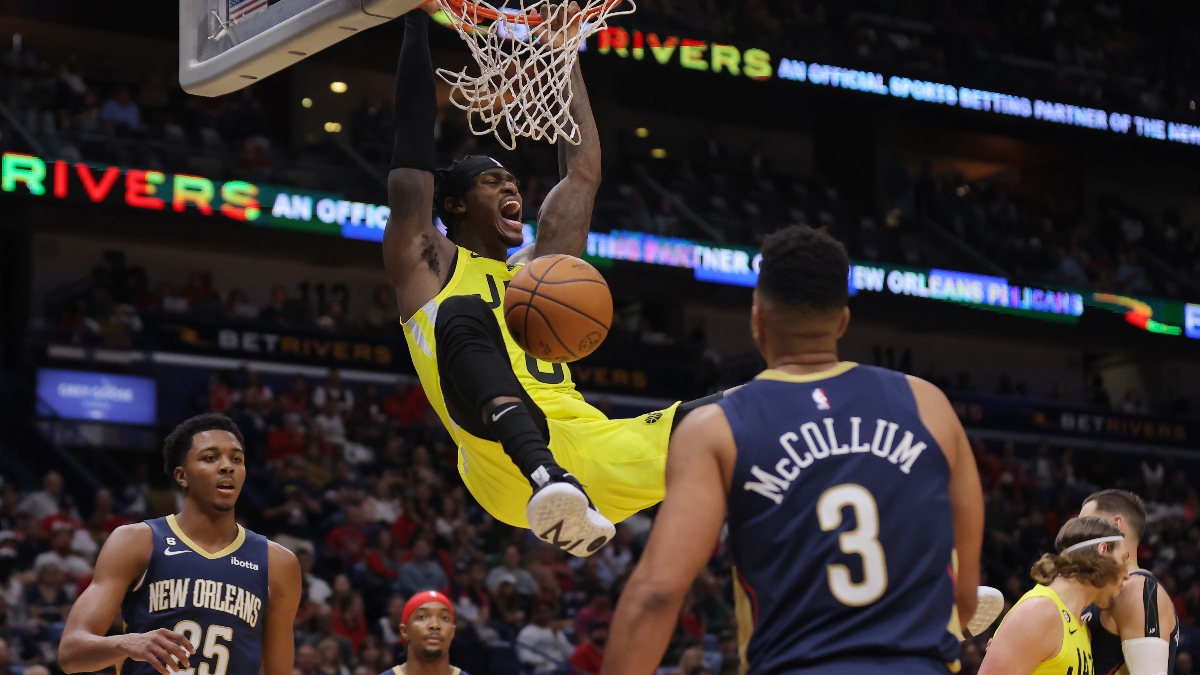
Utah actually ranks dead last in defensive rebounding rate.
Offensive rebounding is a choice. Most modern coaches eschew the glass to get back on defense. Hardy's guys are going the other way.
2. Turnovers Forced
The Jazz rank fourth in turnovers forced at 14.5%. Utah forces the opponent to turn it over once every seven possessions. Many of those turnovers are coming on steals, where Utah ranks second with 9.8 per game.
Like offensive rebounds, live ball turnovers lead to easy, efficient offense. Utah doesn't have nasty defenders or guys known for steals. This is an intentional stylistic choice. Utah is gambling for steals.
The Jazz turn it over a lot, too. They rank bottom five in turnover rate. Really, the offensive rebounds and turnovers are mostly just offsetting their own weaknesses.
But the third math advantage is the biggest.
3. 3-Point Volume
The Jazz lead the NBA in 3-pointers attempted at 41.6 per game. Utah has four guys bombing at least six 3s per game. Almost the entire top eight of the rotation takes at least 2.8 treys per game, all but Vanderbilt.
Conley, Clarkson, Sexton, and Talen Horton-Tucker are all posting career-high 3-point-attempt rates. Beasley, Markkanen, and Olynyk are near career highs as known snipers. Markkanen and Olynyk also both rank top three in minutes, which means Utah is playing four- or even five-out at all times.
The Jazz have gunners everywhere, and they are absolutely bombing.
Utah is also limiting opponent 3-point attempts by running opponents off the arc. The Jazz allow the seventh-fewest attempts per game at 30.9. That means Utah is hoisting almost 11 extra treys per game. That's a serious math advantage.
Utah's also had 3-point shooting luck defensively (32.8% allowed), so the Jazz are allowing the second fewest 3s in the league. Right now, Utah is allowing 5.0 fewer 3s per game than it makes!
Think of it this way: that's a full 15-point head start for Utah every single game.
Utah is also top 10 in pace. Usually, teams at a talent disadvantage are better off playing slow, limiting the number of possessions. In Utah's case, more possessions means more opportunity for the math gap to widen in its favor.
So how far can Utah's mathematical advantages take them?
It's a Matchup-Specific Math Problem
Utah's math won't work forever, and it won't work against everyone.
I would not want to bet the Jazz against teams like the Mavericks, Cavaliers, Bucks, or Kings. All four teams take heaps of 3s and limit opponent 3s, just like the Jazz. All four are also great on the defensive glass, and Dallas and Milwaukee don't turn it over much, either.
You want to bet the Jazz against opposite stylistic opponents. Here are seven presumably better teams that Utah poses math problems for:
- Wolves: Eighth lowest 3-point attempt rate (3PAr), second highest 3-point attempts allowed (3PAa), third worst defensive rebounding rate (dreb%)
- Pelicans: Second lowest 3PAr, 10th highest 3PAa, 10th worst dreb%
- Grizzlies: Third highest 3PAa, sixth worst dreb%
- Knicks: Sixth lowest 3PAr, highest 3PAa, fourth worst dreb%
- Clippers: Ninth lowest 3PAr, eighth highest 3PAa, highest turnover rate
- Bulls: Third lowest 3PAr, third worst dreb%
- Hawks: Lowest 3PAr, fifth worst dreb%
Each of those seven teams has two or more big math problems in any game against the Jazz.
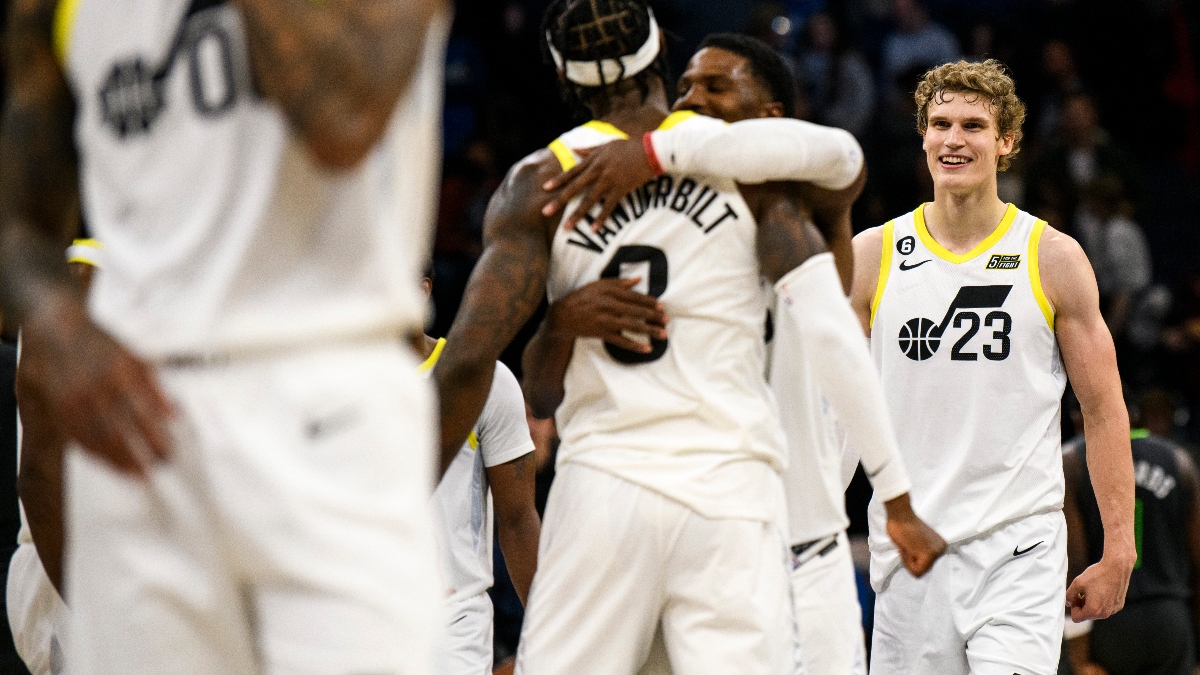
And we've already seen it play out. Utah has played four games against the first three opponents on that list:
- Wolves: Jazz +17 3PA, +27 behind the arc, 20 TOs forced, covered by 14 and won in OT
- Pelicans: Jazz +11 3PA, +15 behind the arc, 15 offensive rebounds, covered by 9.5 and won in OT
- Grizzlies: Jazz +17 3PA, +21 behind the arc, 20 TOs forced, covered by 4.5 and won by one
- Grizzlies: Jazz +21 3PA, +39 behind the arc, 16 TOs forced, covered by 19 and won by 16
The Jazz are 4-0 ATS and straight up against mathematically-vulnerable opponents. They eked out three of the four wins but covered comfortably, by 11.8 PPG.
Utah's math is wreaking havoc.
So How Do We Bet the Jazz?
Is Utah a serious threat to make the playoffs? It's probably too soon to tell.
The Jazz are still at a talent deficit against most playoff teams. Utah benefited by getting four of its first eight against mathematically-favorable opponents, and don't forget that they were one shot away from losing three of those four even with the math on their side.
The win total under could be in serious jeopardy if there are no trades soon, maybe even if there are. Will Hardy's math problem isn't going anywhere.
For now, the best way to play the Jazz is game-by-game.
Utah's first November game comes against the Mavericks. Dallas's strengths mute every Jazz math advantage, so that might be a spot to fade Utah.
But the Jazz play the Clippers later this week and three times in November. They also play the Hawks, Knicks, and Bulls soon, all on the list of vulnerable Utah opponents. They play the Pelicans (twice) and Wolves at the start of December too — more vulnerable opponents.
Really, every opponent is vulnerable to Utah. Even if the Jazz don't have a math advantage, their style of play makes them volatile and unpredictable. When you gamble for steals and offensive rebounds and shoot 40 3s a game, you're liable to go ice cold for stretches and get red hot for others.
No lead is safe in Utah games — in either direction. The Jazz will lay an egg in some games but be a threat for blowout wins or huge comebacks in others.
With Utah's math in mind, we too will have big opportunities as bettors.
Bombs away.


